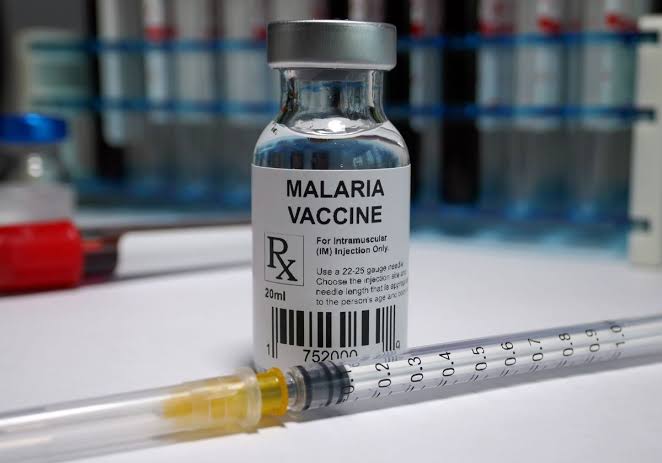Facts About R21 As Nigeria Becomes Second Country To Approve Malaria Vaccine
18th April 2023 10:04 AM ![]()

Nigeria has become the second country to approve the R21 malaria vaccine produced by the world's largest vaccine manufacturer, Serum Institute of India, SII.
Professor Mojisola Adeyeye, the Director General of National Agency for Food and Drug Administration and Control, NAFDAC, disclosed this Monday at a press briefing in Abuja.
Professor Adeyeye explained that the country expects to get at least 100,000 doses of the vaccine in donations soon before the market authorization will start making other arrangements with the National Primary Health Care Development Agency, NPHCDA.
The approval comes just few days after Ghana, a West African country on the Gulf of Guinea, approved the vaccine developed at the University of Oxford for use. In both Ghana and Nigeria, the vaccine was authorized for use in children aged 5 to 36 months, the age group at highest risk of death from malaria.
In a report by the World Health Organization, WHO, four countries accounted for just over half of all malaria deaths globally in 2021: Nigeria (31%), the Democratic Republic of the Congo (13%), Niger (4%) and the United Republic of Tanzania (4%). Statistics have indicated that Nigeria suffers the world's greatest malaria burden, with approximately 51 million cases and 207,000 deaths reported annually, while 97% of the total population (approximately 173 million) is at risk of infection.
On the other hand, Malaria is endemic and perennial in Ghana, with pronounced seasonal variations in the northern part of the country. In 2021 alone, there were 5.7 million confirmed malaria cases, out of which 275 people died, according to Ghana's Ministry of Health. The ministry added that children under the age of five accounted for 1.6 million of those cases and 125 of the reported deaths.
The Director of the Jenner Institute, University of Oxford, Professor Adrian Hill, where the vaccine was invented, said they expect R21 to make a major impact on malaria mortality in children in the coming years, and in the longer term, it will contribute to the overall final goal of malaria eradication and elimination.
The only vaccine currently authorized for malaria by the World Health Organisation, WHO, is the RTS, S/AS01 (RTS, S) vaccine which is 29% effective in preventing severe malaria disease. Nonetheless, here are the key facts you need to know about the groundbreaking R21 malaria vaccine.
Seven Major Facts You Should Know About The R21 Malaria Vaccine:
1. The R21 vaccine was initially designed and developed at the University of Oxford and has undergone clinical trials in the UK, Thailand, and several African countries, including an ongoing phase III trial in Burkina Faso, Kenya, Mali and Tanzania that has enrolled 4,800 children. Results from these trials are expected to be reported later this year which will be a major determinant of widespread use of the R21 vaccine.
2. Trial data from preliminary studies in Burkina Faso showed the R21 vaccine was up to 80% effective when given as three initial doses, and a booster a year later. The trial involved an initial cohort of 409 children aged 5 to 17 months.
3. The R21 vaccine targets the plasmodium ‘sporozoite’, which is the first form of the malaria parasite entering the human body. This makes it the best target for vaccination.
4. The R21 vaccine, is the first to exceed the World Health Organization’s target of 75% efficacy, and could be rolled-out as soon as the WHO approves the vaccine for wider use, with Gavi and UNICEF fully prepared to fund and procure doses.
5. The vaccine contains Novavax’s Matrix-M, a saponin-based adjuvant that enhances the immune system response, making it more powerful and long-lasting. The Matrix-M adjuvant stimulates the entry of antigen-presenting cells at the injection site and enhances antigen presentation in local lymph nodes.
6. The R1 vaccine will fundamentally complement existing efforts to combat malaria, rather than replace them. Such efforts include long-lasting impregnated mosquito nets (LLINs), increase in targeted areas receiving Indoor Residual Spraying (IRS), among others.
7. The Serum Institute of India, SII, is gearing up to manufacture between 100-200 million doses annually, with a vaccine factory already under construction in Accra, Ghana. This means the vaccine production is closer to the countries in Africa that need it most. The R21 malaria vaccine is a low-dose vaccine that can be manufactured at mass scale and modest cost. The factory will be run by DEK Vaccines Limited and has already received a €5 million grant from the European Union, EU.